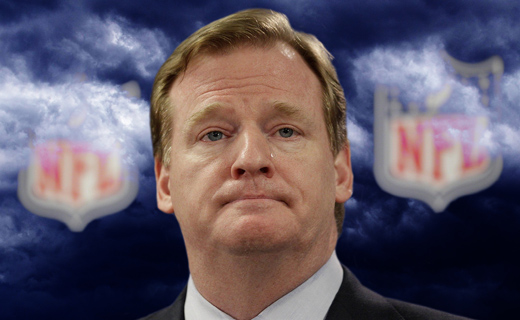
“Oh what a tangled web we weave, when first we practice to deceive.” Sir Walter Scott (Marmion, 1808)
Last week, I wrote that a fading story surrounding the violent assault on Janay Palmer Rice by her then-fiancé and now husband, Baltimore Ravens running back Ray Rice, had gotten new legs.
What triggered this renewed attention was the public release of a new tape – a second tape – that shows Ray Rice knocking out Janay with two powerful blows to her face in the elevator of an Atlantic City casino hotel in February. The first tape had shown Ray Rice dragging her unconscious off the elevator, but not the actual assault.
Almost immediately upon the new tape’s release, calls for a stiffer penalty for Rice (he had been given a two-game suspension by National Football League Commissioner Roger Goodell) flooded the media. But the uproar didn’t stop here. Criticism of Goodell for the way he handled this case of domestic violence became louder and wider. Some commentators, including myself, said Goodell should be fired.
Sensing this shift in public mood, the Ravens released Rice and Goodell suspended him from football indefinitely. But these actions didn’t mollify the growing disquiet.
Indeed, disquiet turned to outrage by the end of the week when the Associated Press reported that the commissioner’s office had access to the second tape months ago, in late March, in fact not long after the battering took place.
Goodell, not unexpectedly, went into and remains in damage control mode. First his office announced with great fanfare the formation of an “independent” committee, whose job is to determine if the second tape had been sent to the commissioner’s office and if so, who knew about it. But the problem here, as more than one sports commentor mentioned, is that the committee members, some of whom have close ties to the NFL, will be paid by the NFL and will report to two owners of NFL teams.
Next Goodell did an interview with Norah O’Donnell on “CBS This Morning,” where he denied any knowledge of the second tape. He never saw nor knew anything about it, he claimed, despite the fact that the police have an audio recording of someone (unnamed so far) in his office receiving it.
Then the NFL team owners, who are Goodell’s employer, publicly expressed their unqualified support for him. And maybe none more than Dallas Cowboys owner Jerry Jones, who himself is a subject of a sexual assault suit.
But the growing legion of critics was unwilling to fall for the commissioner’s tale. If Goodell didn’t know of the tape, he is either very incompetent or willfully ignorant, most said.
More than one cited his insistence in recent disciplinary cases against football players, coaches, and teams that ignorance can’t be an excuse to either justify bad behavior or escape punishment.
For example, in the “Bountygate” scandal (paying bounties to physically harm the team’s opponents) involving players on the New Orleans Saints football team two years ago, Goodell levied penalties against Saints head coach Sean Payton and general manager Mickey Loomis as well as Saints players. When Payton and Loomis claimed that they had no knowledge of the locker room practice, Goodell very righteously ruled “ignorance is no defense.”
Thus, Goodell’s claim now that he didn’t have access to the second tape and thus didn’t know the full story as to what happened on the elevator is, by his own standards, no defense. What’s good for the goose is good for the gander, Rog!
But, thinking more about it, it really doesn’t matter in some ways whether he did or did not know of the second tape. Nor does it really matter how he ruled on Bounty gate.
The fact of the matter is that Goodell forfeited his position as commissioner of the NFL in the first go-around in this investigation. How can anyone have any confidence in him when in the same “CBS This Morning interview mentioned above, in a reply to a question by O’Donnell about his light penalty – a two-game suspension – for Rice, he said,
“When we met with Ray Rice and his representatives, it was ambiguous about what actually happened.”
O’Donnell asked the obvious follow-up question: What was “ambiguous about her laying unconscious on the floor being dragged out by her feet?”
“That was the result that we saw,” Goodell incredibly replied. “We did not know what led up to that.”
Which prompted another question from O’Donnell: “But what changed? I mean, on the first tape she was lying unconscious on the ground, being dragged out by her feet. Did you really need to see a videotape of Ray Rice punching her in the face to make this decision?”
To which Goodell replied, “No. We certainly didn’t. And I will tell you that what we saw on the first videotape was troubling to us in and of itself. And that’s why we took the action we took.”
It is hard to find a single term that captures Goodell’s rhetorical dance – obfuscating, duplicitous, disingenuous, evasive, dissembling … the list could go on.
What it reveals is a very insensitive and callous commissioner – a commissioner lacking a moral compass and possessing an inexcusable blind spot when it comes to domestic violence against women in general, and, one has to think, against Black women in particular. It would be naïve to think that the unremitting demeaning of African American women in our culture, in large measure the doing of right-wing ideologues in the media, academia, think tanks, politics, and pulpits, has had no effect on public attitudes, Goodell’s included.
Much the same argument could be made about the owners of the NFL teams. They too have a blind spot. And like Goodell, they can’t wait until the controversy surrounding Ray Rice and other episodes of domestic violence involving Greg Hardy of the Carolina Panthers and Ray McDonald of the San Francisco 49ers (and now the parental abuse charge against Vikings star running back Adrian Peterson) blow over and the football season goes on unencumbered by such “distractions.”
People who follow the game are saying that the owners will take violence against women seriously and will consider disciplinary action against Goodell only if and when corporate sponsors begin to pull their financial support, which sponsors like Budweiser are hinting they might do.
In other words, the battering of women by men matters in the exclusive world of NFL owners only to the degree that it interferes with their cash flow.
But then again such a calculus is not peculiar to football. Profit-making no matter the human and social cost penetrates every aspect of our society. Nearly everything is subordinated to the cash nexus. Unless there is an aroused and united people demanding and fighting for justice, human values and decency – not least the right of every woman to live without the fear of physical threat and violence and in conditions of full equality – stand no chance in the face of the machine of corporate profit-making.
I don’t say this to excuse Roger Goodell or Jerry Jones and the other football owners or Ray Rice or Greg Hardy or Ray McDonald or Adrian Peterson. I do so to bring into clearer view the deep social roots of this problem and the necessity of many-layered and deep-going solutions. Cleaning up football is a beginning, but not an end. Much more will have to be said and done.
As I said in my earlier article, football, despite its violent and masculinist culture, isn’t an island unto itself, but rather a microcosm of social crisis that ripples across every segment of our larger society.
Nor, I should add, is domestic violence confined to any race. Ray Rice, Greg Hardy, Ray McDonald, and Adrian Peterson, who are African Americans, are high-profile perpetrators of domestic violence. But hidden from view is a broad array of men of different races, incomes, backgrounds, and classes who are batterers of women. Many studies prove this.
And yet, we run the danger at this moment of creating a misperception – an untruth – because of the public prominence of professional football players and the 24-hour news cycle, that African American males have a lock on domestic violence of women (and children). That untruth can’t be allowed to propagate.
It would not only sustain a belief that has no grounding in fact, but also divert public attention and initiative from the incontestable fact that this is a problem and crisis that engulfs our our entire society, and men of all races and backgrounds in the first place.
Photo: NFL Commissioner Roger Goodell. thebiglead.com/Michael Shamburger @mshamburger1












Comments